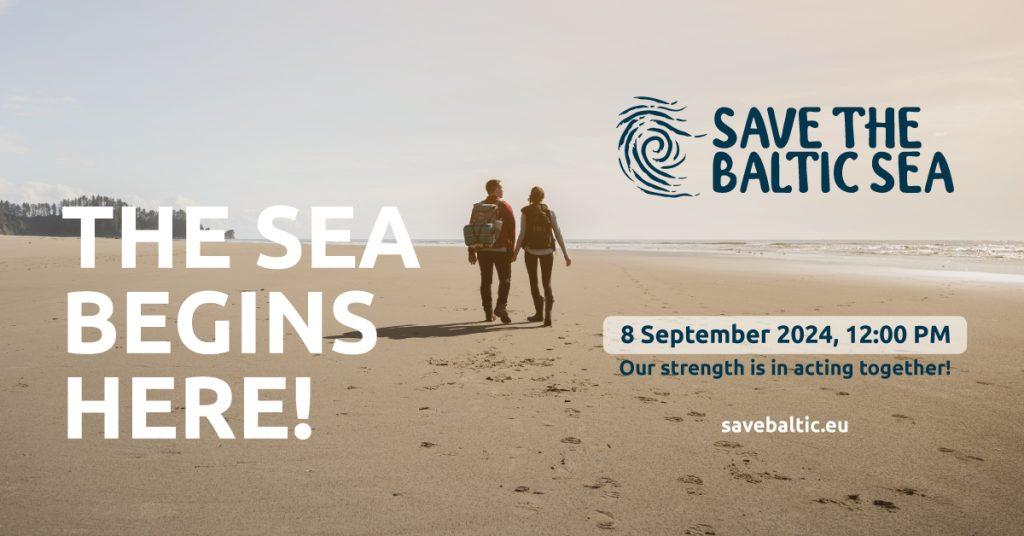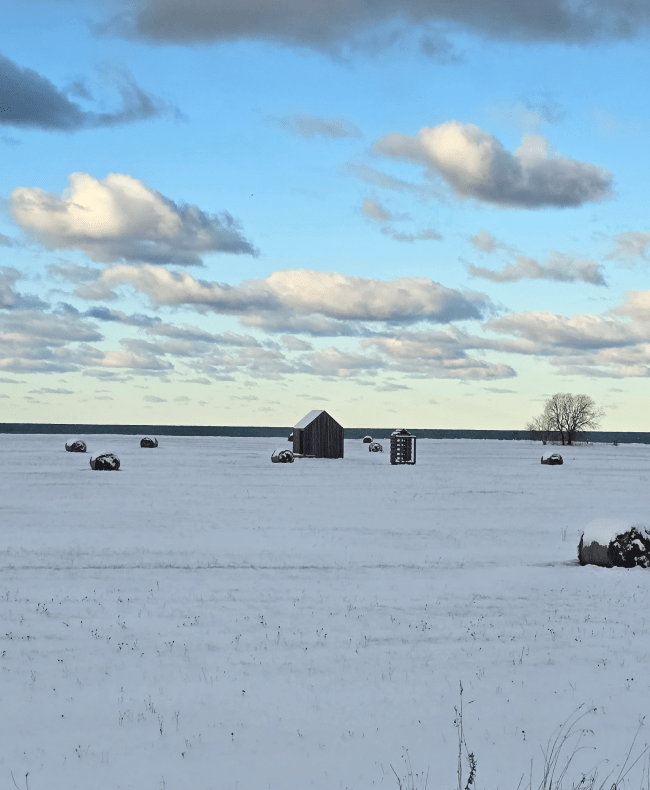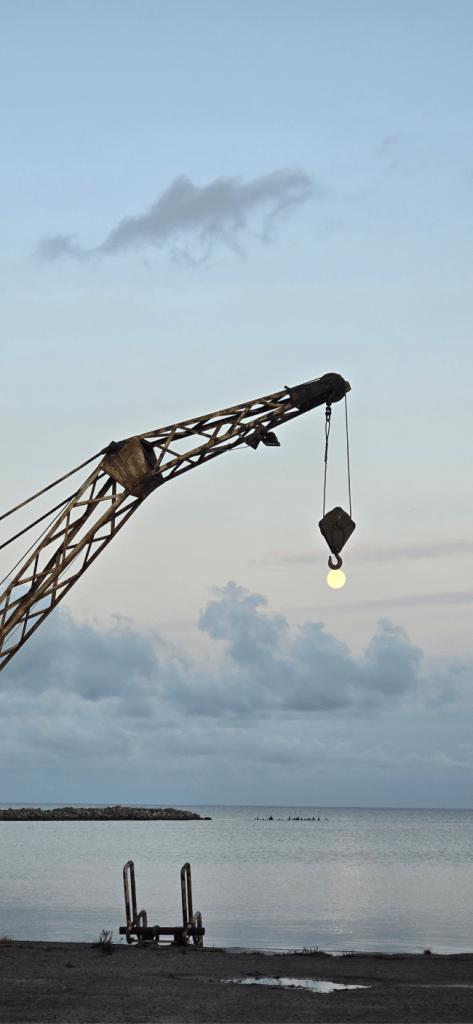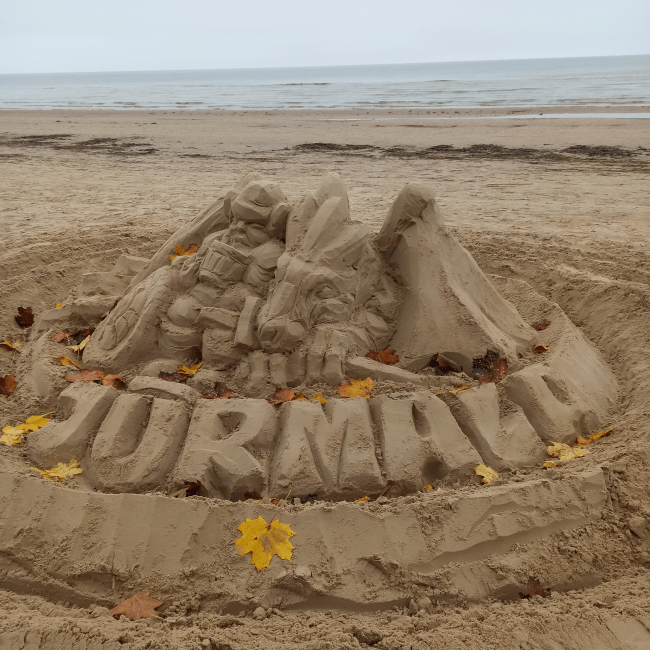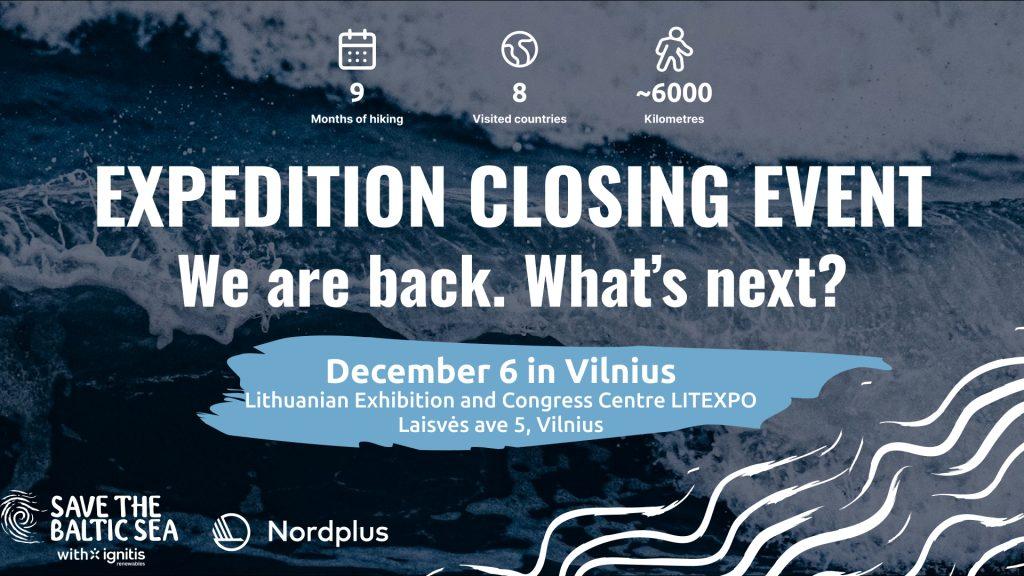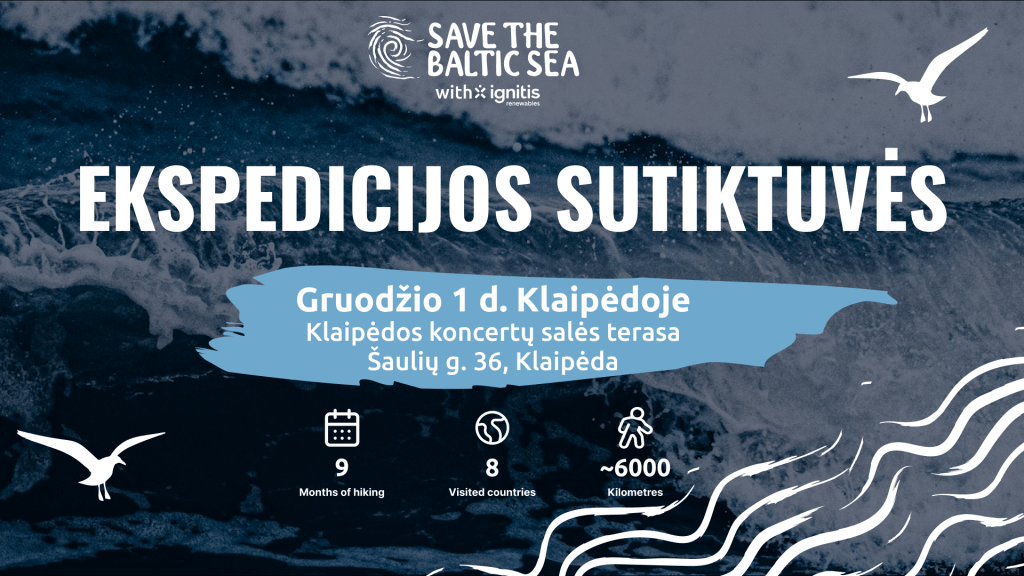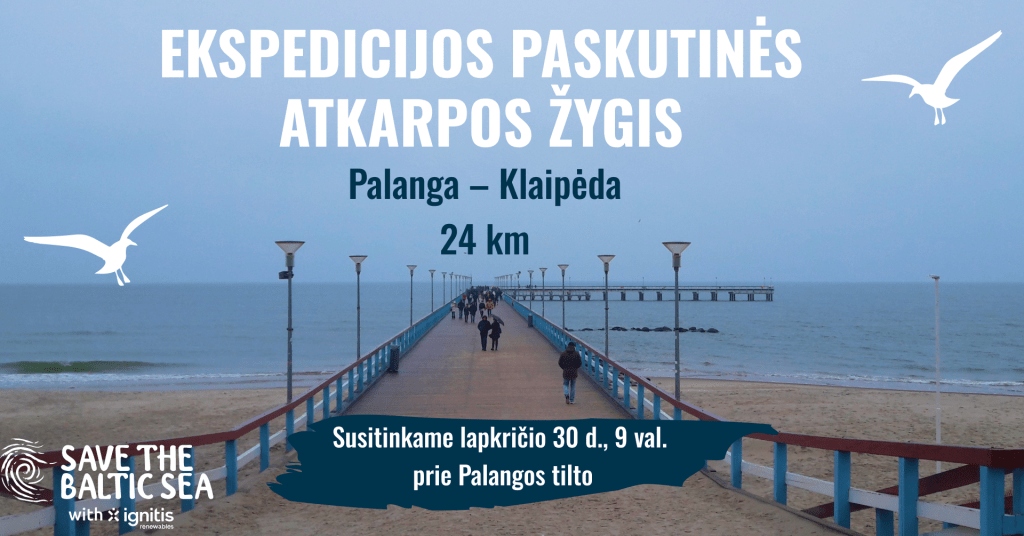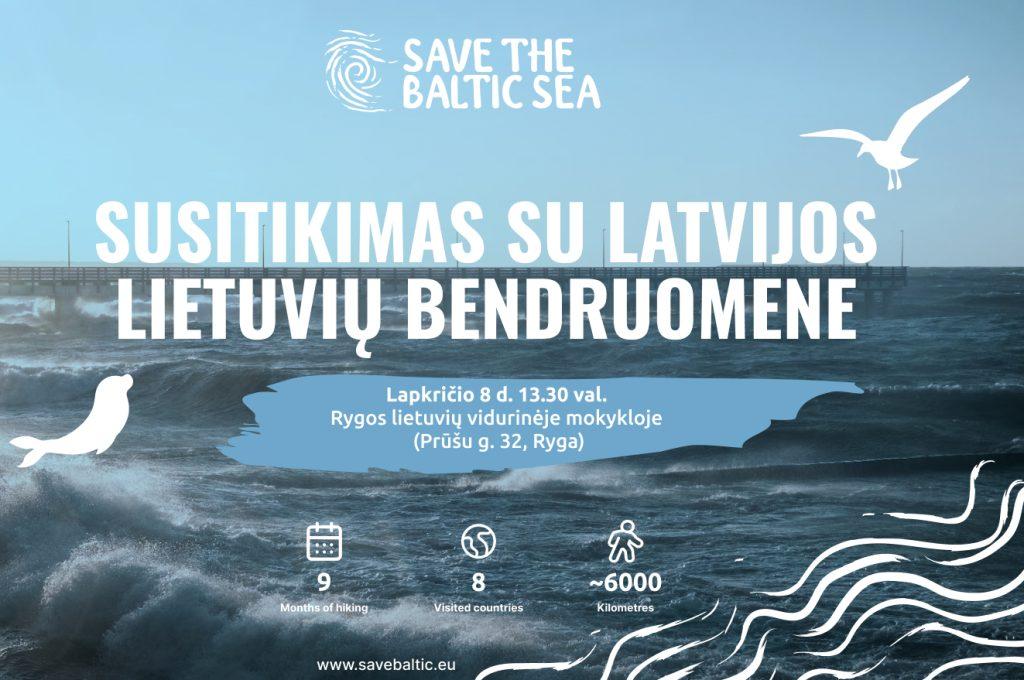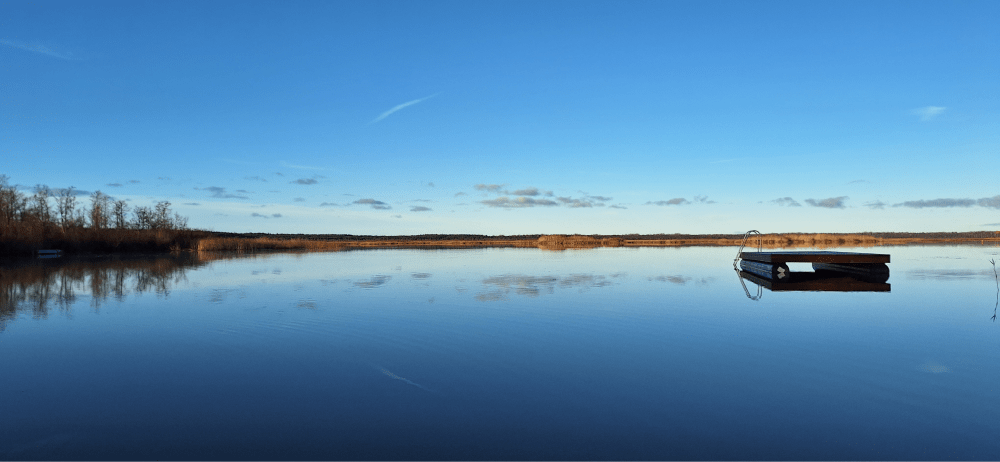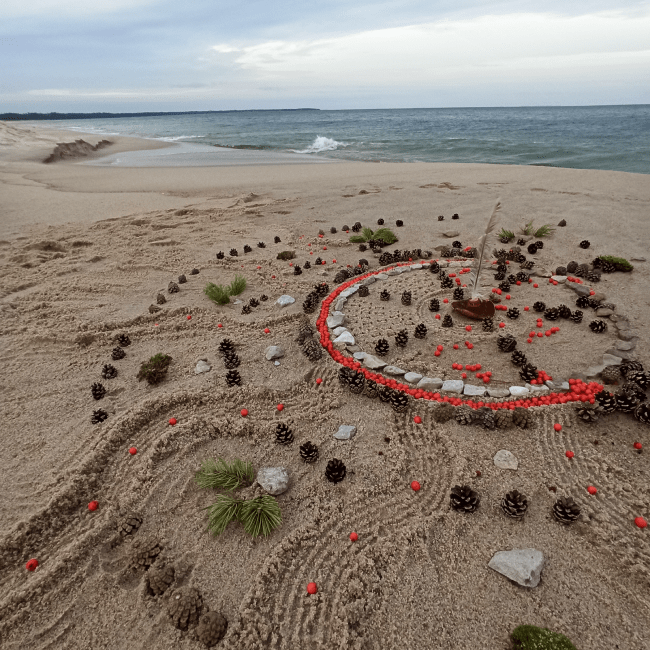Save The Baltic Sea expedition addresses Baltic Sea concerns in Germany
May. 16, 2024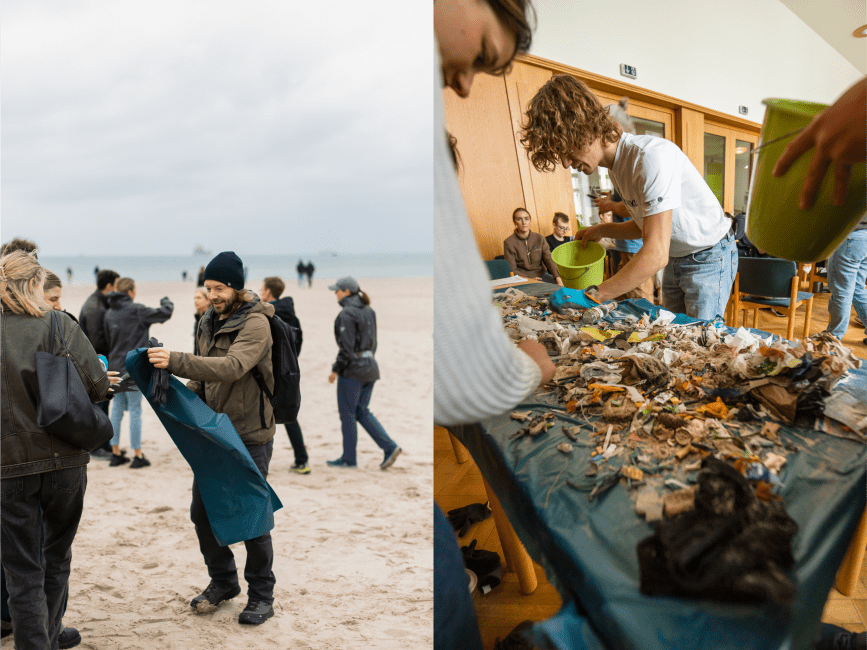
The hikers of the expedition Save The Baltic Sea, which has been continuing for nearly two months already, have crossed a 400-kilometer section in Germany. Along the way, the expedition team and local scientists invited residents to take a closer look at the state of the Baltic Sea and share best practices in tackling pollution.
Coastal tourism – an important factor in countries’ economies
Coastal tourism plays a significant role in the economies of the nine countries surrounding the Baltic Sea, generating a total average annual profit of EUR 33.7 billion, according to the latest data from the intergovernmental Helsinki Commission (HELCOM). The biggest share of this profit goes to Poland and Germany, the countries which were already crossed by the Save The Baltic Sea expedition team.
While intensive tourism brings economic benefits to governments and residents, it is also often associated with an increased negative impact of human activities on the environment and marine ecosystems. However, according to the fresh impressions of the expedition’s hikers, Germany has plenty of good examples of reducing this negative footprint.
“Upon entering Germany, we quickly noticed significantly smaller amounts of litter. Despite the coastal towns being heavily populated, recycling bins are not scarce. We also had the impression that people here have a natural inclination towards recycling. I would like to believe that future generations will bring about such positive change in other countries as well,” says Rusnė Sabonaitytė, the expedition’s hiker and ecologist.
Coastal litter – left behind by tourists
Despite Germany’s reputation for cleanliness, its beaches are not immune to the problem of coastal litter. This reality is underscored by both scientific data and coastal surveys conducted during our expedition. Mirco Haseler, a scientist at the Leibniz Institute for Baltic Sea Research in Warnemünde, sharedinsights into this issue during an educational event organized in Warnemünde by the Save The Baltic Sea expedition in collaboration with the Coastal Union Germany and the Leibniz Institute for Baltic Sea Research.
“According to our findings, 80% of the litter found on the German coast is plastic,” explained Haseler. “This includes items such as cigarette butts, often mistaken for paper, as well as various single-use plastic wrappers and residues from fireworks. The primary culprit behind this pollution is the irresponsible behavior of tourists.”

Political and corporate responsibility: Germany’s case
When discussing solutions to the problem, Haseler emphasizes the importance of promoting collective responsibility and education, as well as the role of politicians and business in driving large-scale changes.
According to the scientist, the first step towards reducing the amount of litter is to adopt circular economy principles, which are based on reuse, recycling, and sustainable consumption. Such principles are reflected in Germany’s bottle deposit system.
“Discarded bottles are rarely seen on Germany’s beaches or elsewhere thanks to the bottle deposit system. Since used bottles can be returned for money, people perceive value in them,” says Mirco Haseler.
Emerging business models that emphasize renting, borrowing, or sharing services instead of outright purchasing can also significantly curb waste production in various sectors. An illustrative example is the growing trend of renting reusable dishes for events and festivals that marks a shift towards more sustainable practices in the market.
Another critical concept highlighted by the expert for significantly reducing the amount of generated and unsorted waste is extended producer responsibility (EPR):
“In essence, EPR embodies the ‘polluter pays’ principle. It means that ensuring the collection and recycling of the packaging after the product has been used is under the responsibility of the manufacturer,” explains Haseler. “One approach is to enforce this responsibility through the implementation of mandatory fees on companies for the sorting of their packaging. Simultaneously, such measures serve as incentives for companies to adopt more environmentally friendly packaging solutions.”

Beach wrack – wanted or not?
German beaches often accumulate algae and seaweed deposits, known as beach wrack. While Nardine Stybel, a researcher at Coastal Union Germany, highlights that beach wrack can serve as a food source for seabirds, surveys indicate that beach-goers often perceive large amounts of it to be as unwelcome as litter.
“Although beach wrack is a natural occurrence on many beaches in the southern Baltic Sea, efforts are underway to find solutions for beaches popular among tourists. The goal is to satisfy holidaymakers while also utilizing beach wrack effectively,” explains Stybel.
Stybel was involved in a project that has developed an environmentally friendly approach to address both the accumulation of beach wrack on tourist beaches and plastic pollution.
“In coastal areas like Warnemünde, fences are commonly used to trap drifting sand and protect shores from erosion. However, most of these fences are made of plastic, which eventually breaks down into smaller particles, polluting the environment. To reduce plastic use and pollution, we have developed an alternative to plastic fences made from accumulated beach wrack,” says the scientist, highlighting the success of the project.
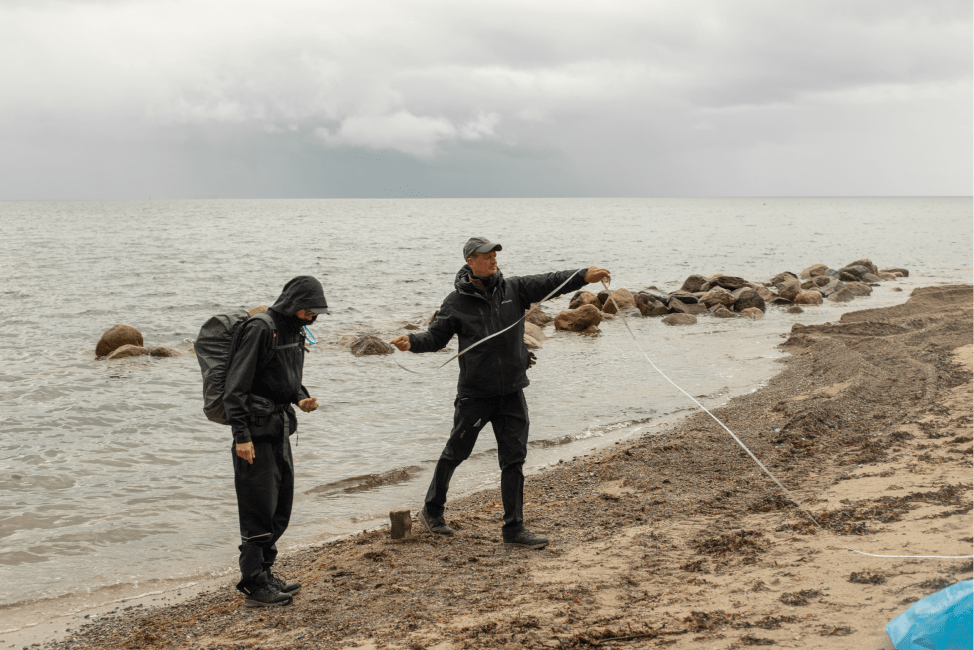
Next up – Denmark
The Save The Baltic Sea expedition team has already entered Denmark and is covering a distance of 25-35 kilometers every day. This challenging journey includes meetings with local communities, coastal surveys, beach clean-ups, and public education activities to inspire action towards protecting the Baltic Sea.
We invite you to contribute to the expedition’s goals by donating the cost of your daily cup of coffee or any other amount of your choice on the expedition’s website: https://savebaltic.eu/support
You can learn more about sea-friendly solutions and follow the daily life of expedition hikers on social media: Facebook, Instagram, Youtube
The Save The Baltic Sea expedition events in 8 countries are organized with the support of the EU4Ocean Coalition funded by the European Commission.
Author: Laura Stukonytė
Photos: Urtė Paulauskaitė / Save The Baltic Sea
